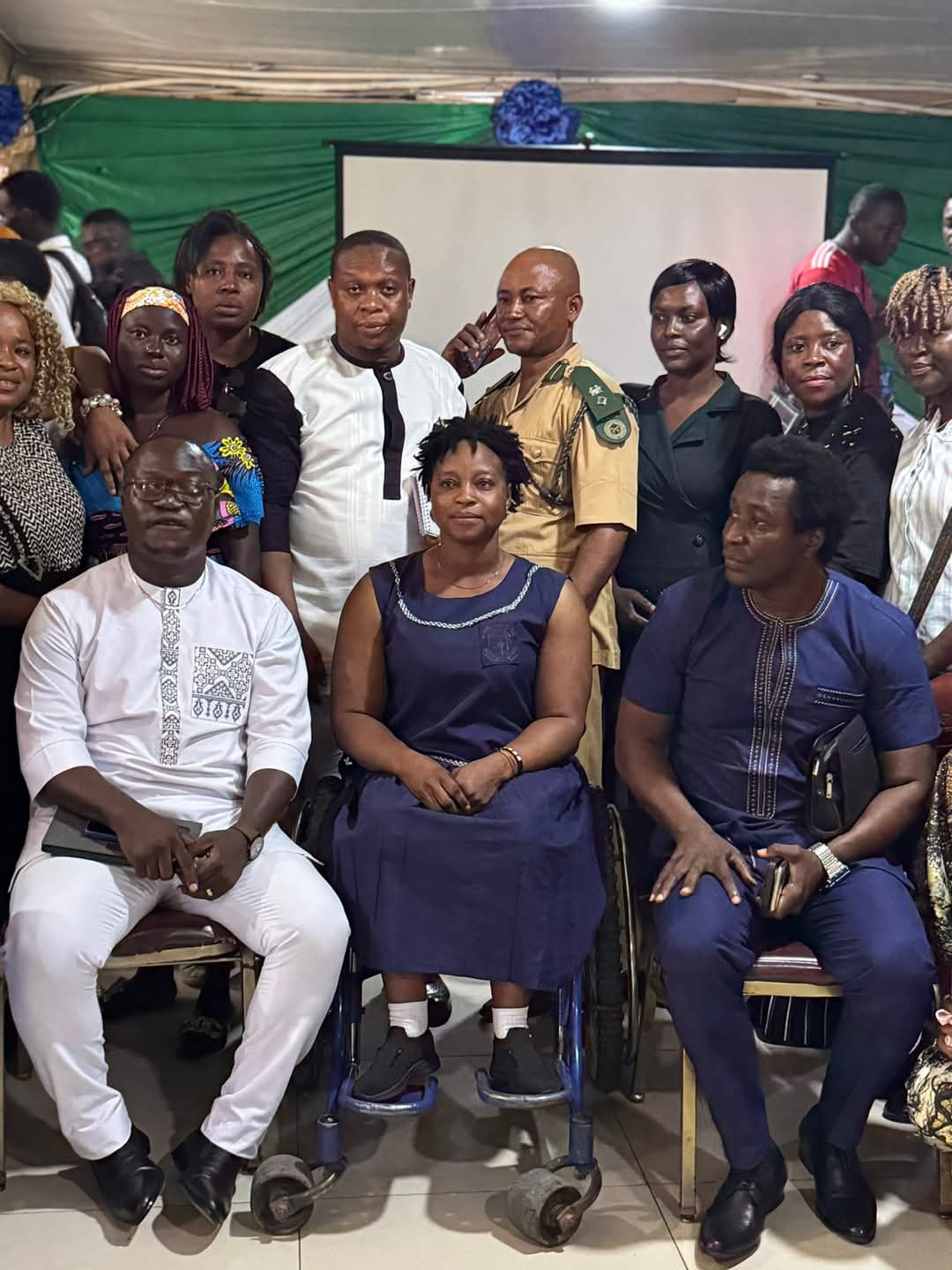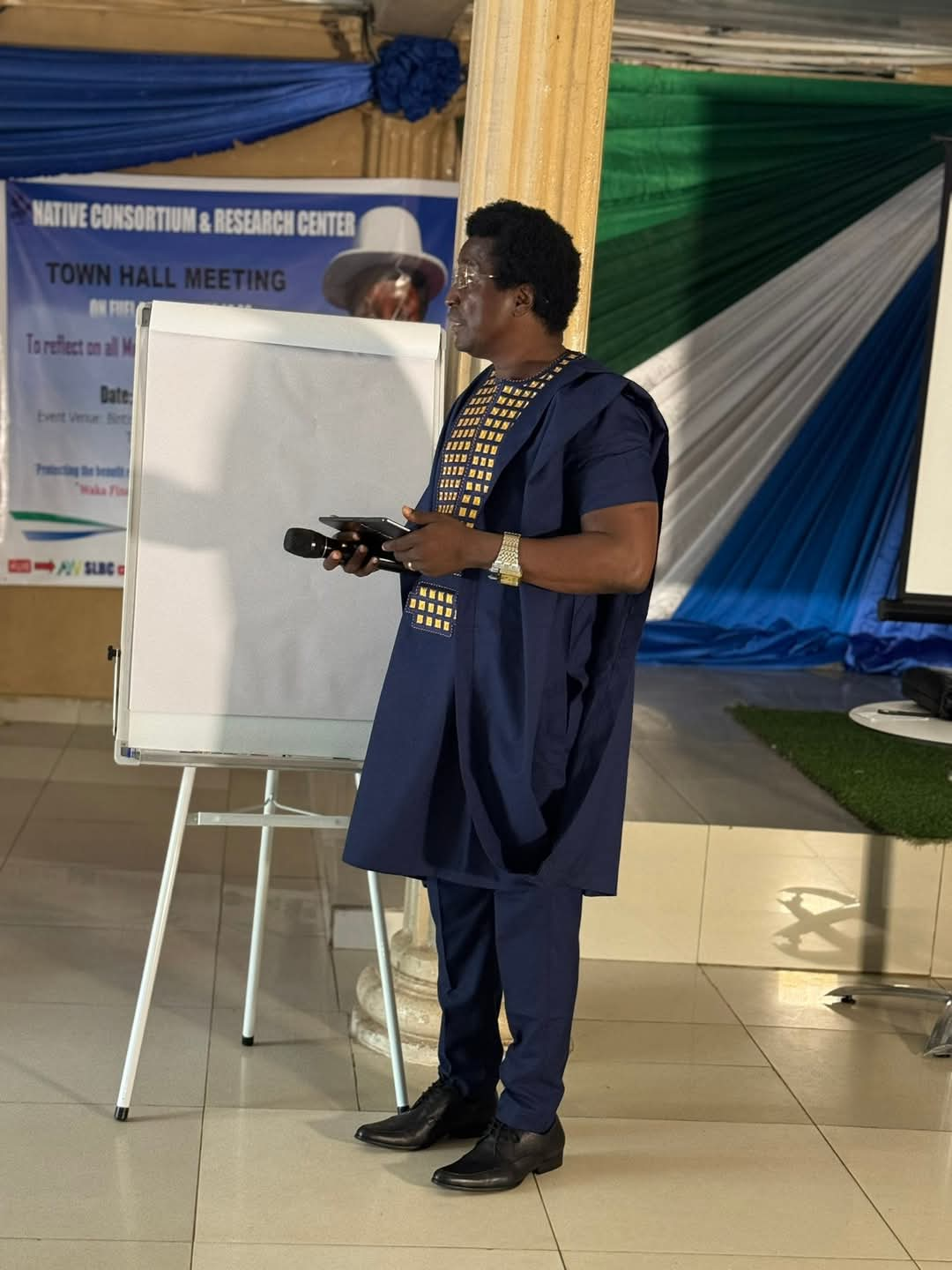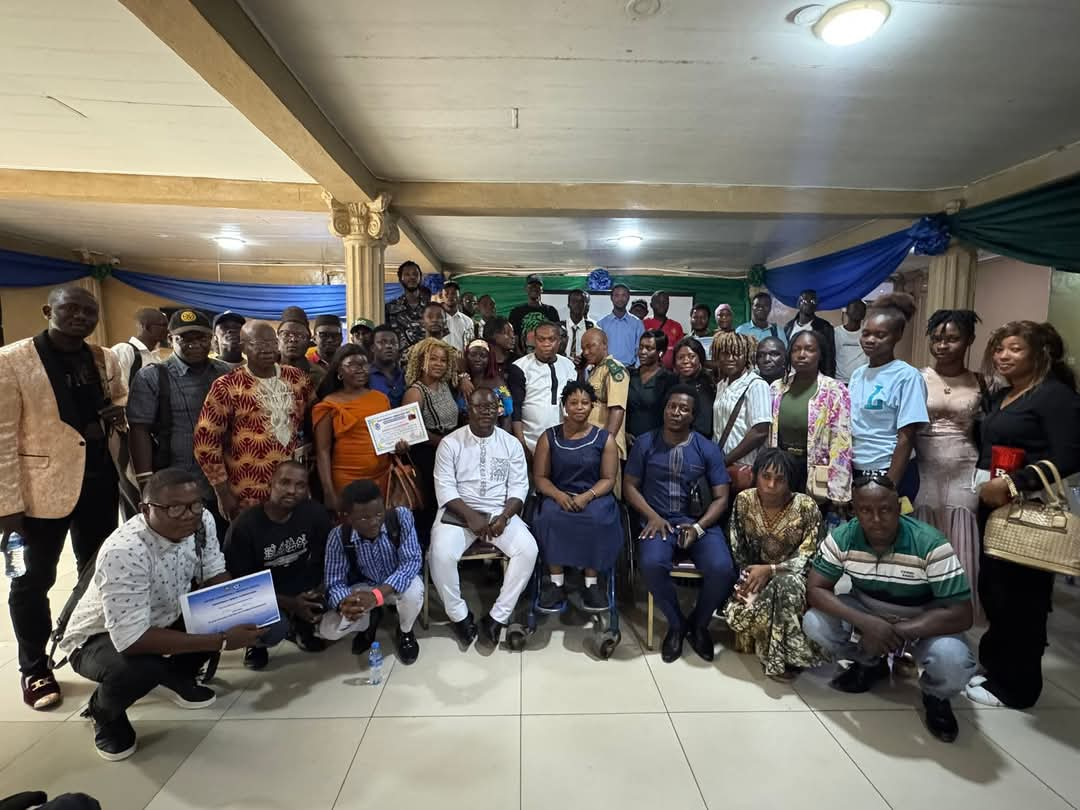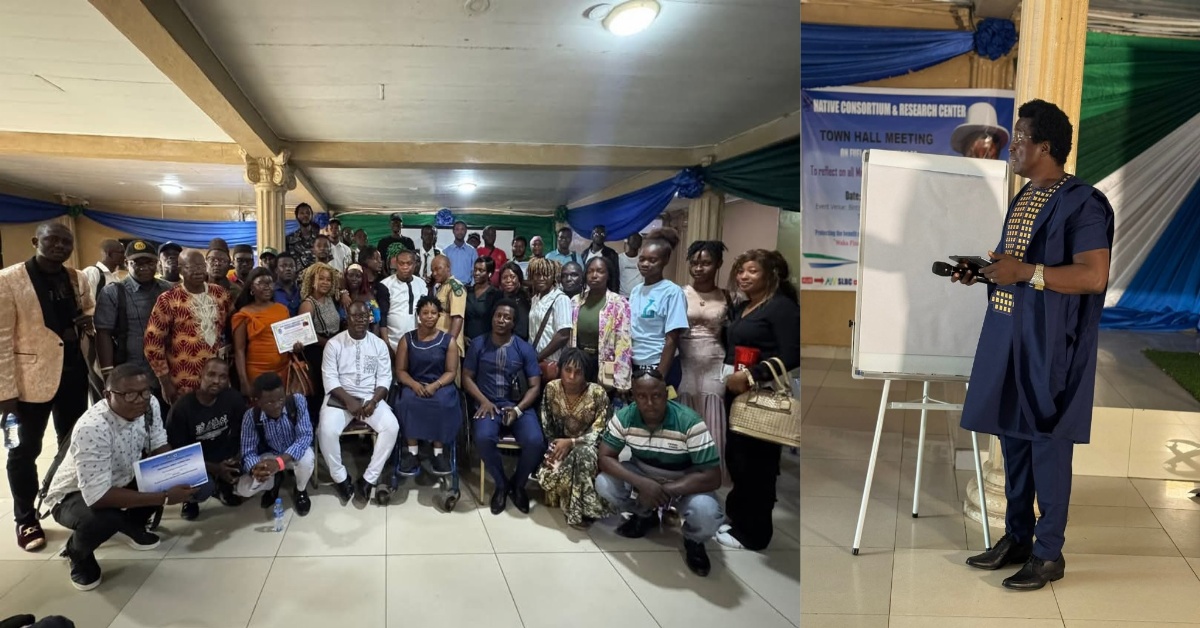The Native Consortium and Research Center (NCRC) has renewed calls for a significant reduction in the pump price of fuel in Sierra Leone, citing recent global price drops and the strengthening of the Leone against the US dollar.
The call was made during a town hall meeting held at the Bintish Hotel Conference Hall in Bo City under the theme “Reflecting Fuel Price Cuts Across All Means of Land and Sea Transportation.”
In a detailed presentation, NCRC Executive Director Edmond Abu Jr. argued that with a 20% drop in global fuel prices, it is both fair and necessary for the Government of Sierra Leone to implement a 17% reduction in local fuel prices—bringing the pump price down from Le 27.3 to Le 22.7 per liter.
Rationale Behind the Price Cut
Edmond Abu Jr. highlighted several justifications:
Global Market Impact: With oil prices down by 20% internationally, the local market should see a proportional reduction.
Currency Appreciation: The Leone has appreciated against the US dollar, which directly influences the cost of fuel imports.
He also criticized the Ministry of Transport and Aviation for not enforcing transport fare adjustments when pump prices were previously reduced—from Le 30 to Le 27.3.

“When prices drop at the pump, we must see corresponding drops in public transport fares. That’s not happening, and it’s the ordinary Sierra Leoneans who suffer,” Abu Jr. stated.
Using data-driven calculations, the Consortium presented examples of what adjusted transport fares should look like:
Freetown to Bo bus fare should drop from Le 120 to Le 100
Keke, Okada, and taxi rides currently priced at Le 5 should drop to Le 4, and those at Le 10 should drop to Le 8
Ferry fares, including the Freetown to Lungi route, should also reflect reductions
The NCRC also examined recent changes in Sierra Leone’s downstream fuel sector, identifying a “price revolution” driven by new entrants like Zala, Eco Energy, and Aminata.
Zala, a new Oil Marketing Company (OMC), was praised for being the first to sell below government-mandated prices—offering fuel at Le 26 per liter.
Zala’s competitive pricing has already influenced older OMCs like Leoneco, which recently slashed prices to Le 23 for diesel and Le 25 for petrol without government intervention.

These developments, according to NCRC, have empowered local dealers, some of whom are now enjoying profit margins of up to Le 3 per liter, a major leap from the previous Le 0.5 margin.
“This revolution in fuel pricing has validated our long-standing advocacy. For the first time, dealers are earning fairly, and the public is benefitting,” said Abu Jr.
Recommendations to the Government
The Consortium called on the Government of Sierra Leone to take stronger ownership of the fuel sector by:
Venturing into direct fuel importation, as was initiated under former President Ahmad Tejan Kabbah
Constructing a 500,000-metric-ton central storage facility in Sulima or Shenge using BOOT (Build-Own-Operate-Transfer) or PPP (Public-Private Partnership) models
Regaining control of strategic storage infrastructure, much of which has been sold or leased to private entities

“Sierra Leone is one of the few countries in the region that does not own a significant share of fuel storage or engage in importation. This leaves us vulnerable to market manipulation,” Abu Jr. warned.
The event ended with a strong appeal for transparency, accountability, and public-centered reforms in fuel pricing, transportation costs, and energy sector governance.
The meeting climaxed with the distribution of certificates to team members for their relentless contributions to the Native Consortium. Special recognition was also given to Sierraloaded and AYV for their continued efforts in helping to promote the objectives of the Native Consortium.












Good work,wish that your voice may bring out a good deal…
Just one of those ministries that don’t know what their functions are. They rather focus on graft and theft than to regulate transport dynamics.
God bless you sir may your words we be hard